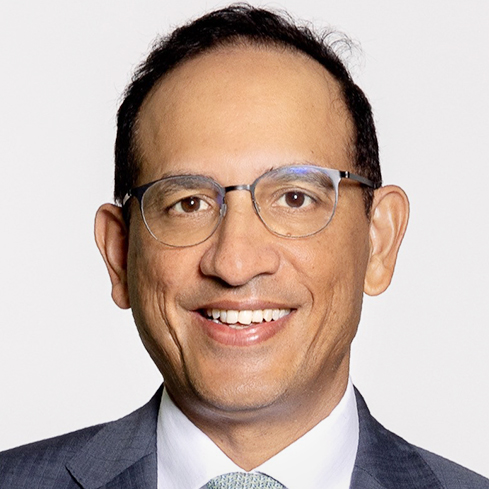
Vietnam has emerged largely unscathed from the global pandemic. Consumption by an emerging middle class and a trade-driven economy continue to propel economic growth forward, projected at 6.7% in 2021 by the World Bank. Financial service providers – the financial institutions group (FIG) sector – such as commercial banks, consumer finance companies, fintech/payment service companies and insurance providers, remain at the forefront of driving economic growth and development.
We anticipate a robust year for M&A activity in the FIG sector. In particular, after a lengthy period of being eased into Basel II compliance, Vietnamese commercial banks must now report capital adequacy and other prudential ratios to the State Bank of Vietnam in accordance with Basel II standards under Circular 22 dated November 15 2019, effective January 1 2020. The more stringent Basel II compliance will continue to fuel Vietnamese commercial banks' insatiable demand to identify capital sources.
What challenges do we see for investment in Vietnamese commercial banks in 2021?
Vietnam has launched a number of new laws that became effective on January 1, 2021. These include a new Law on Investment, Law on Enterprises and Law on Securities. These laws, particularly the Law on Securities, contain provisions that may materially impact foreign investment in the commercial banking sector. Under the 2021 Law on Securities, private placements by listed companies (including listed commercial banks) may only be made to either strategic investors or institutional securities investors. Investors may qualify as "institutional securities investors" through a number of criteria, with the clearest path forward for a foreign investor being a paid-up capital requirement of 100 billion dong (US$4.34 million).
However, since the directors of an issuer must be satisfied with the investor's qualification as an institutional securities investor at the time the transaction is approved by the board, this may pose timing issues for private equity funds and other investors that prefer to conduct their investments using special purpose vehicles (SPVs), which are often capitalized shortly before closing. Navigating this potential pitfall will require coordination with the issuer and its advisers and, potentially, discussions between the issuer and the State Securities Commission (SSC).
However, the banking sector remains governed by old laws. The Law on Credit Institutions tracks back to 2010. Despite several amendments to it, there is a disconnect between this law and more recent laws on matters of corporate, investment and securities that may result in conflicting interpretations on the nature of approvals required for the investment and operational challenges post-investment.
Moreover, we note that trading secondary shares on the Vietnamese stock exchanges remains subject to the relevant trading band (+/-7% on the Ho Chi Minh City stock exchange and +/-10% on the Hanoi stock exchange). Approvals from the SSC and Vietnamese Securities Depository are required in order to trade outside the applicable band.
Foreign ownership limits remain unchanged in the banking sector. Despite liberalization of certain aspects of the laws, aggregate foreign ownership remains capped at 30% for commercial banks (whether listed or unlisted). Shareholding in commercial banks is regulated such that a strategic foreign investor may hold no more than 20%, an institutional investor and its related persons may hold no more than 20%, and an institutional investor may hold no more than 15%. Moreover, foreign investors that are not financial institutions or that do not meet other capital requirements are limited to holding less than 10% of the shares in a commercial bank. The prime minister has the authority to permit foreign investment of up to 100% in certain distressed banks, though, to date, these transactions have been slow to materialize. This may result in fierce competition for foreign ownership stakes and result in an issuer/seller-friendly market from a pricing perspective.
Where do we see investment opportunities in commercial banks for investors in 2021?
New equity. Since banks must predominantly rely on common equity (Tier 1 Capital) to meet Basel II compliance standards, direct equity subscription opportunities should continue to represent significant opportunities for foreign investment. Corporate governance transparency and access to other information for foreign investors have been enhanced with most Vietnamese commercial banks now being listed on either the Ho Chi Minh City or Hanoi stock exchange.
Tier 2 Capital bonds. Bonds may be structured either as convertible instruments or long-term subordinated debt in order to qualify as Tier 2 Capital under Basel II. The convertible piece provides equity upside to investors through the conversion option and downside protection through the debt instrument. Over the past year, we have seen financial investors and development finance institutions focused on Tier 2 Capital instruments as an attractive investment option in Vietnam. Tier 2 Capital bonds may be denominated in foreign currency (unlike shares in a Vietnamese bank), which provides investors with currency protection. We anticipate a strong year for Vietnamese capital markets in 2021.
Secondary share investment opportunities. While secondary share investment opportunities generally do not move the needle on the capital levels and prudential ratio compliance of the banks, strategic opportunities may be generated by exits of foreign strategic investors looking to realign their global strategy (in particular, commercial banks in Europe or the United States). Other opportunities may come in the context of local shareholder controlling groups looking for liquidity options.
In conclusion, a suite of new Vietnamese laws and a banking sector that aggressively is in search of capital should make for a vibrant 2021 in the FIG M&A sector. As more banks are listed on a securities exchange, successfully executing a foreign investment in a bank gives rise to a tension between, on the one hand, enhanced liquidity and ability to execute trades quickly and, on the other hand, what remains a time-consuming and document-voluminous process to obtain regulatory approval for foreign investments and divestments and tight foreign ownership limits that cannot be breached. This backdrop requires lawyers, financial advisers and brokers to work closely together to ensure that the transaction can be executed smoothly.
David Harrison is a partner of Mayer Brown’s Vietnam office.









